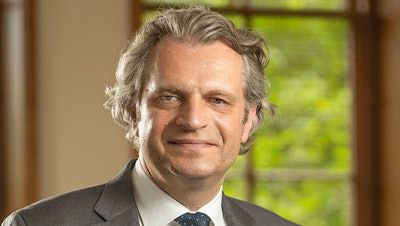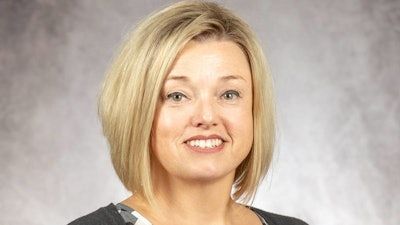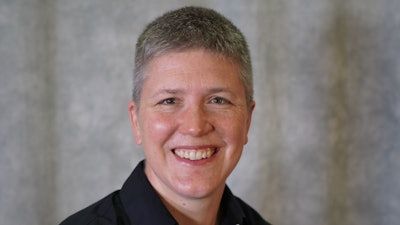Author: admin
The orange guy does not like the marijuana laws… At all. Hear that pot smoking voters? – Daily Kos
Written by admin on . Posted in Code 420. Leave a Comment
Royal Parks workers bring landmark case over race and equal pay
Written by admin on . Posted in Diversity and Inclusion. Leave a Comment
Exclusive: Group of London toilet cleaners and attendants at court of appeal over legality of outsourced contracts
A group of toilet cleaners and attendants for London’s most famous parks could be about to make legal history in the court of appeal by arguing that their outsourced contracts amounted to indirect race discrimination.
While Royal Parks’ mostly white in-house staff were paid at least the London living wage, its outsourced cleaners, who were almost all black, only received the minimum wage until they went on strike in 2019.
Chad Burroughs Unveils Vision for Champaign County Sheriff Role Amid Ohio’s Marijuana Legalization – BNN Breaking
Written by admin on . Posted in Code 420. Leave a Comment
Vanderbilt University Expands Popular Financial Aid Program
Written by admin on . Posted in Diversity and Inclusion. Leave a Comment
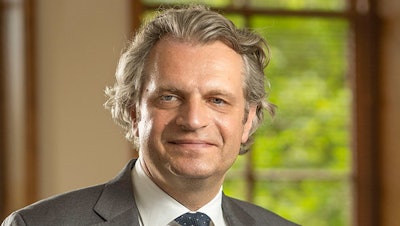
Vanderbilt University is expanding its nationally recognized no-loan financial aid program, known as Opportunity Vanderbilt.
 Dr. Daniel Diermeier
Dr. Daniel Diermeier
“We want everyone who has what it takes to get into Vanderbilt to be able to enroll, regardless of their financial background. If you’re admitted, you belong here,” said Diermeier. “And we want to help make sure you can be here.”
Scholarship recipient families also, typically receive Opportunity Vanderbilt awards greater than full tuition to support housing, food, travel, and other college expenses, according to Douglas L. Christiansen, vice provost for university enrollment affairs and dean of admissions and financial aid. For example, the median annual award is $70,350 for families in the income range of $125,000 to $150,000, and the median annual award goes up to $90,640 for families in the income range of $0 to $50,000.
Many families with incomes of more than $150,000 still qualify for financial aid. For example, for families in the income range of $150,000 to $175,000, the median annual award is $62,650. For families with an income of more than $200,000, the median annual award is $39,940.
Since its inception in the fall of 2009, more than 15,400 students have benefited from Opportunity Vanderbilt, and over 19,750 university alumni, parents, and friends have contributed more than $565 million in gifts toward the program’s endowment support.
Global Cannabis Market Report Probes the Insights: Size, Overview, and Forecast – WhaTech
Written by admin on . Posted in Code 420. Leave a Comment
Report: Hardships of Black LGBTQ+ Youth Span School, Family, and Multiple Community Settings
Written by admin on . Posted in Diversity and Inclusion. Leave a Comment

Black LGBTQ+ youth face both racism and homophobia as a result of their intersectional identity. As a result, they also face hardships related to a number of facets in their lives, including school safety, religion, community support, and higher education, according to a new report from the Human Rights Campaign (HRC) Foundation. Charleigh J. Flohr
Charleigh J. Flohr
The “2024 Black LGBTQ+ Youth Report” – which the HRC Foundation created in partnership with the University of Connecticut – examines data from their 2022 survey of more than 12,000 LGBTQ+ teenagers, ages 13-17, and suggests ways in which parents and educators can help.
“Black LGBTQ+ youth need allyship, support and resources tailored to their Black LGBTQ+ identities,” said report co-author Charleigh Flohr, associate director of public education and research for the HRC Foundation. “Those two identities are not separate, and while information for LGBTQ+ people and Black people are important, the information and resources for people who live at the intersections of those two identities can look very different.”
For the purposes of the report, respondents who are transgender, non-binary, gender nonconforming, and other non-cisgender gender-expansive are referred to as transgender/gender-expansive youth.
“This report reinforces the unfortunate disposition of many Black LGBTQ+ students,” said Chauna C. Lawson, associate director for HRC’s HBCU Program. “They are challenged with navigating racism within LGBTQ+ spaces while simultaneously being met with homophobia and transphobia within the Black community.
“While the landscape of inclusion at HBCUs has improved significantly over the past 10-15 years, there is still far too much stigma around LGBTQ identities. These students find themselves targeted/alienated by faculty and staff just as much as by their peers, if not more so.”
In general, higher percentages of Black transgender/gender-expansive youth reported hardships than Black LGBTQ+ youth, in the realms of race, gender/sexuality, family, and school.
Within the LGBTQ+ community, approximately three in four Black LGBTQ+ and transgender/gender-expansive youth reported having faced at least one form of racism in the LGBTQ+ community and around seven out of ten said they have heard white LGBTQ+ people saying racist things.
Respondents reported feelings of distrust and being misunderstood by white LGBTQ+ people, with more than 60% of both Black LGBTQ+ and transgender/gender-expansive youth saying that they cannot trust their white counterparts.
The numbers are higher by a few percentage points for those who said they felt misunderstood. And they are even higher for Black LGBTQ+ and transgender/gender-expansive youth who said they have to educate white people about race, adding more burden to the experiences of these Black teenagers.
Black LGBTQ+ youth mentioned instances of homophobia, transphobia, lack of acceptance, and dismissive attitudes from other Black people. More than 80% of Black LGBTQ+ and transgender/gender-expansive youth reported having faced one or more forms of homophobia/transphobia in the Black community.
Many said they felt misunderstood (72-75%), invisible (61-67%), or not accepted (54-57%) by those in the Black community, with more Black transgender/gender-expansive youth reporting as such than Black LGBTQ+ youth.
Levels of awareness and acceptance at home and at school for these young people varied, according to the report.
While most Black LGBTQ+ youth (81.9%) are out to at least one member of their immediate family, more than half (56.1%) of respondents are out to none of their extended family. And less than a fifth (18.8%) said they were out to all members of their immediate family, a percentage that is lower than that of the overall LGBTQ+ youth population, 26.4%.
Awareness does not equate to acceptance or support, however. According to the report, similar percentages of Black LGBTQ+ youth responded that they have felt supported by their parents (56.5%) or that they experienced some degree of parental rejection (58.6%), whether it be through mocking, negative comments, or being made to feel bad for their LGBTQ+ identity.
Again, more of the trans and gender-expansive respondents than LGBTQ+ youth reported these negative experiences, and less of them reported that their parents said they liked them as they were. But notably, a good portion more of trans and gender-expansive youth reported that their parents expressed pride of their child’s LGBTQ+ identity – 48.2% compared to 33% for Black LGBTQ+ youth.
The report’s authors urged parents and caregivers to do research on the Black LGBTQ+ experience, local LGBTQ+ communities, and role models and mentors for their child.
Harassment and bullying remain prominent enough as issues for Black LGBTQ+ youth in school, the report noted, given that more than half of respondents reported having faced harassment, physical or verbal. More so than for their race/ethnicity (32%), Black LGBTQ+ and trans/gender-expansive youth said they were bullied at school because of their sexual orientation or gender identity/expression (approx. 50%).
As these students progress through their schooling, more than 80% are thinking about college. Yet a good portion of them (28-32%) find themselves worried that them being LGBTQ+ could harm future college and higher ed opportunities.
Educators can take steps and create lesson plans to highlight Black LGBTQ+ figures and content that affirms Black LGBTQ+ experiences and identities, the report’s authors suggested.
Lawmakers can also contribute to support this demographic, Flohr wrote.
“Every policymaker should come out against any law or policy seeking to push LGBTQ+ people back into the closet,” said Flohr. “Across the United States, in state legislatures and elsewhere, laws and policies are being made to criminalize and dehumanize our community.”
Even when faced with all this hardship, 90% of Black LGBTQ+ youth expressed pride for being part of the LGBTQ+ community, though that’s not to say that this population does not feel sadness or self-criticism because of their LGBTQ+ identity, according to the report.
“The fact that so many Black LGBTQ+ youth are still proud of their identities in the face of adversity is a true testament to the resiliency and strength of Black LGBTQ+ youth,” said Flohr. “I ask everyone: If public officials and lawmakers were working to criminalize many of your identities, how would you feel?”
Western Wyoming Expands Support for Rural, Working Students
Written by admin on . Posted in Diversity and Inclusion. Leave a Comment
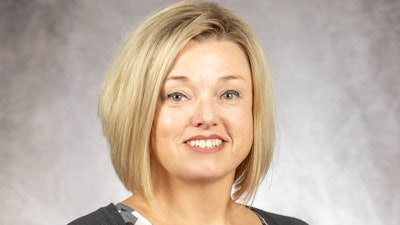
Western Wyoming Community College has launched a new partnership to provide students with immediate access to teletherapy.
 Amy Galley
Amy Galley
“Uwill stood out among the rest for their innovative technology and ease of access,” said Amy Galley, director of wellbeing and accessibility/Title IX at Western Wyoming, noting the strength of competition among potential teletherapy providers. She said Uwill will be able to provide students with diverse, immediate, and effective mental health care.
The campus-wide teletherapy initiative is expected to help provide support for Western’s diverse student population of part-time, working, and adult students.
“Community college leaders have long understood that supporting student mental health and ensuring student success are two sides of the same coin,” said Uwill Founder and CEO Michael London. “Community and technical colleges in rural and remote areas are responding to increased demand for mental health support, and teletherapy solutions can help to close these gaps in treatment, ensuring that students have the resources needed to achieve their educational and career goals.”
KATIE LYNCH
Written by admin on . Posted in Diversity and Inclusion. Leave a Comment
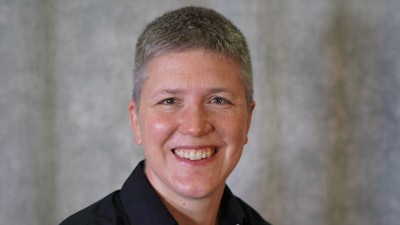
 Dr. Katie Lynch
Dr. Katie Lynch
